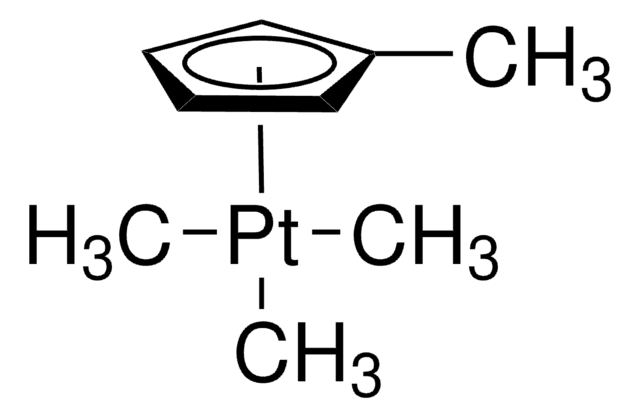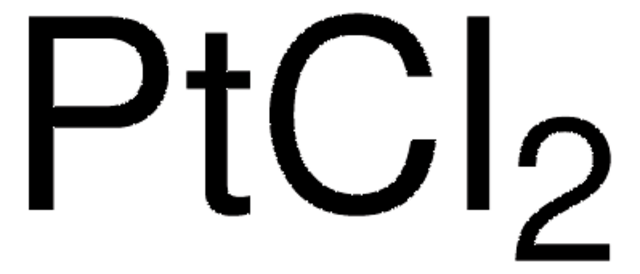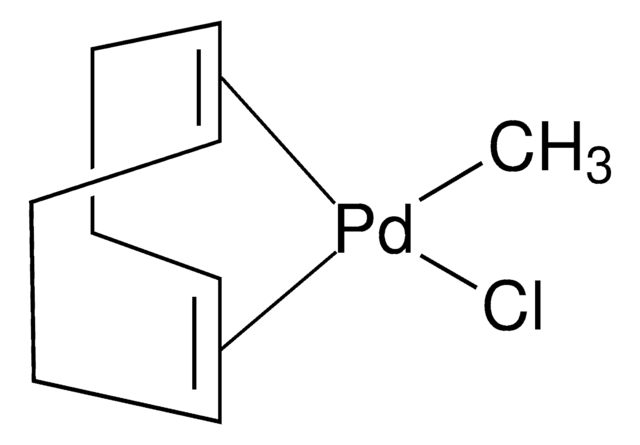282782
Platinum(II) acetylacetonate
97%
Synonym(s):
2,4-Pentanedione platinum(II) derivative, Pt(acac)2
About This Item
Recommended Products
assay
97%
form
solid
reaction suitability
core: platinum
reagent type: catalyst
mp
249-252 °C (lit.)
SMILES string
CC(=O)\C=C(\C)O[Pt]O\C(C)=C/C(C)=O
InChI
1S/2C5H8O2.Pt/c2*1-4(6)3-5(2)7;/h2*3,6H,1-2H3;/q;;+2/p-2/b2*4-3-;
InChI key
KLFRPGNCEJNEKU-FDGPNNRMSA-L
Looking for similar products? Visit Product Comparison Guide
General description
Application
- In the preparation of N-allylanilines by the direct use of allylic alcohols. Anilines with electron-donating groups give good yields.
- For selective N-allylation of 2,3-disubstituted indoles in water.
It can be used as a starting material in the preparation of platinum-lead nanoparticles supported on carbon. The PtPb/C catalyst exhibits enhanced electrochemical activity towards methanol and formic acid oxidation.
signalword
Warning
Hazard Classifications
Acute Tox. 4 Dermal - Acute Tox. 4 Inhalation - Acute Tox. 4 Oral - Eye Irrit. 2 - Repr. 2 - Skin Irrit. 2 - STOT SE 3
target_organs
Respiratory system
Storage Class
11 - Combustible Solids
wgk_germany
WGK 3
flash_point_f
Not applicable
flash_point_c
Not applicable
ppe
Eyeshields, Gloves, type P3 (EN 143) respirator cartridges
Choose from one of the most recent versions:
Already Own This Product?
Find documentation for the products that you have recently purchased in the Document Library.
Customers Also Viewed
Articles
Magnetic nanoparticles have attracted tremendous attention due to their novel properties and their potential applications in magnetic recording, magnetic energy storage and biomedicine.
Magnetism and magnetic materials have been of scientific interest for over 1,000 years. More recently, fundamental investigations have focused on exploring the various types of magnetic materials and understanding the magnetic effects created by electric currents.
Our team of scientists has experience in all areas of research including Life Science, Material Science, Chemical Synthesis, Chromatography, Analytical and many others.
Contact Technical Service













